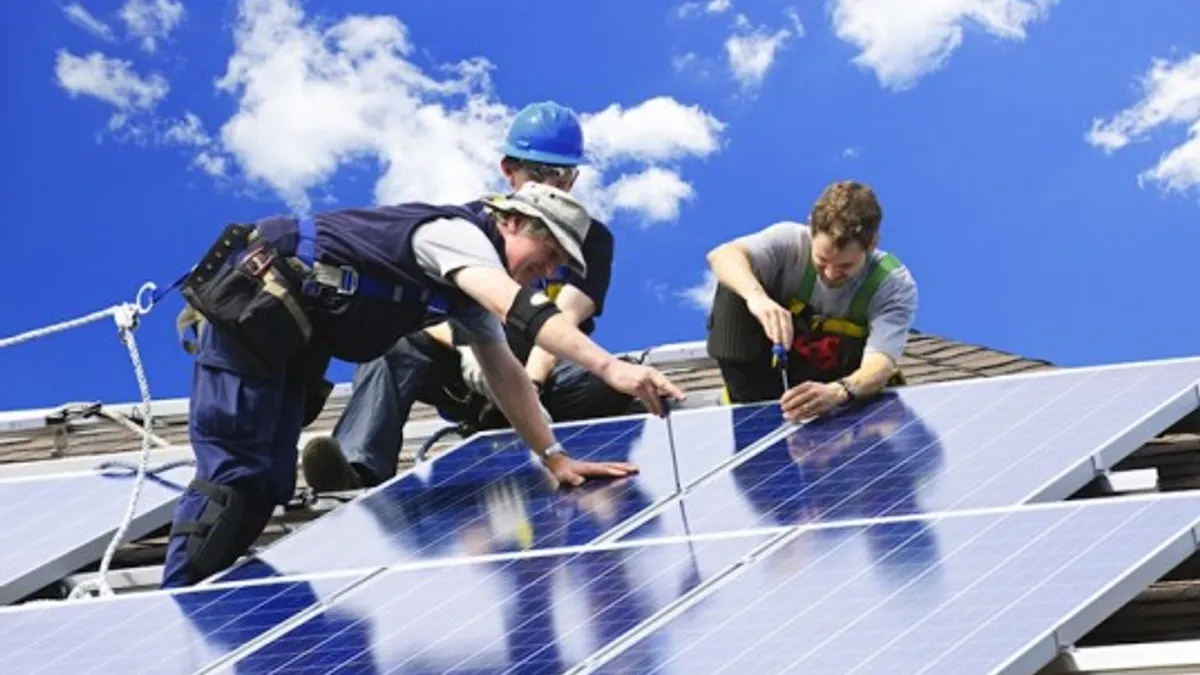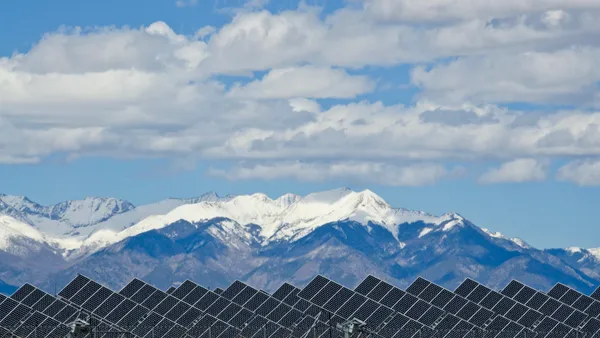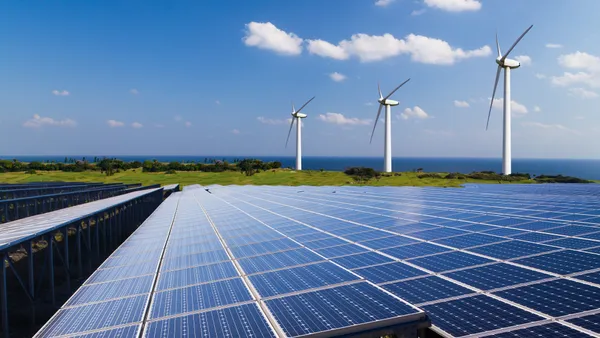Dive Brief:
- Idaho Power, the incumbent utility in the state, filed a request to place rooftop solar customers into a separate rate class in a bid to recoup costs and ensure they sufficiently pay for grid upkeep.
- The utility wants to eliminate the current net metering tariff for new small and residential customers, who own systems totaling 25 kW or less, by the end of the year, and replace it with two new customer classifications. The filing doesn't specify details of the new rate classes, leaving that to regulators.
- Solar advocates told the Public News Service the request is the first step to boost charges on solar customers. Idaho Power requested a decision by Dec. 29.
Dive Insight:
Idaho is the latest state to enter a nationwide debate over its net metering policy, a popular pricing mechanism that credits rooftop solar customers — usually at the retail rate — for their excess energy sent to the grid.
Established on a state-by-state basis, the proliferation of rooftop solar across the United States spurred many of these proceedings in the past several years as utilities looked to reduce compensation or eliminate the policy outright, claiming those customers don't pay their fair share of grid upkeep.
Idaho Power, in its latest filing with the state's public utilities commission, reiterated those claims. The utility unsuccessfully tried to raise fees on rooftop solar customers in 2013.
"These unnecessary inaccuracies in pricing could result in unfair cost shifting between customers who choose to install on-site generation and those who do not," the utility wrote. " As the electric utility industry nationally is assessing the appropriateness of net metering policies and practices established decades ago, ldaho Power believes now is the time to review and modify those policies as they apply to ldaho Power and its customers to ensure that this growing segment of customers has available to it a service offering that is fair-priced, scalable, and sustainable into the future."
The utility also requested a generic docket that would "establish a compensation structure" reflecting the costs and benefits of distributed energy resources. Idaho Power has 1,468 active and pending net metered systems in its service area, according to the filing, and projects the numbers could reach 7,032 customers by 2021. This is still small compared to its fellow Western states such as Arizona and California, both hotbeds for solar issues.
Arizona recently ended its retail rate net metering policy in favor of an avoided cost rate for new rooftop solar generation. And the state's major utility, Arizona Public Service Co., and solar interests recently hashed out a settlement outlining several rate options for the utility's customer base.
California chose to preserve its net metering policy following similar debates in 2015, with plans to revisit the policy in 2019.












